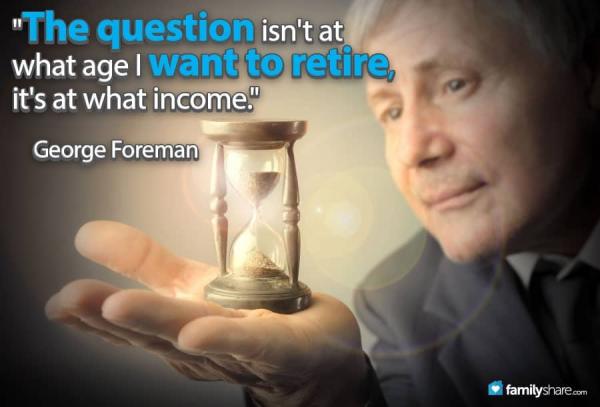
Knowing how much to save each month for retirement is a difficult question even when a financial planner sits down with you and knows your situation. Not knowing your situation makes the question virtually impossible. In order to answer the question, we'll create a hypothetical example and give you some guidance about how to adjust the answer if the hypothetical example doesn't fit.
If you are a couple, both age 35, planning to retire at age 70 and live until you're both 95, with a household income of $80,000 per year, no retirement savings started and would like to have your home paid off and have $70,000 per year of income (adjusted for inflation) throughout your retirement, effectively allowing you to enjoy a higher standard of living in retirement than you will enjoy before then, here are some keys:
Save more than 10 percent of your income
Ignoring the need to save for your children's college, for a car and anything else you want, you'll need to save at least 10 percent of your income just for retirement. (Be sure to save for the other things, too!)
Shelter your retirement savings from tax
Your retirement savings needs to be invested in either a 401k or an IRA where the taxes on interest, dividends and gains are deferred until retirement. If you contribute exclusively to "Roth"� type accounts, you can afford to save a bit less as you'll be paying no income tax in retirement on your retirement savings.
Buy a home
If you don't already own a home, buy one within the next five years so that you can have it completely paid off before you retire at age 70. Choose a home where you can stay for your entire lives, if possible.
Invest in stocks and bonds (using mutual funds)
Given your retirement plans, CDs and savings accounts at banks won't generate enough return on your investments. Recognize, however, that other investments have a greater risk of loss and your retirement plans could be dashed by an unforeseen financial crisis.
The math in these assumptions assumes a 4.5 percent real rate of return. Sounds low, right? Not really. Ten year Treasury Bonds yield less than 2 percent as I write this and inflation is running at close to 3%, meaning that investments in Treasury Bonds today have a negative expected real return - you'll buy less with the proceeds from the Treasury Bond in ten years than you could buy with the cash today.
Note that this plan only provides your target income until you are 95. After that point, you'd be forced to sell your home. Once the proceeds from the sale are exhausted, you'd be living on social security (but that would not likely happen until you were almost 100 years old). Of course, if you end your retirement in the customary fashion (by kicking the bucket) before then, you'll leave a little nest egg for your heirs.
If you would like to retire in less than 35 years, you should be saving much more for retirement. If your household income is greater than the cap on Social Security tax (about $110,000) and all from one spouse, you'll need to save more because social security will be kicking in proportionally less for you in retirement. If you have more time to retirement than 35 years, you can save a bit less. If your dream retirement is somewhat more modest than the example, you can also save a bit less. No one, however, should count on social security to provide an adequate retirement. At a minimum, plan to have your home paid off before retiring.

